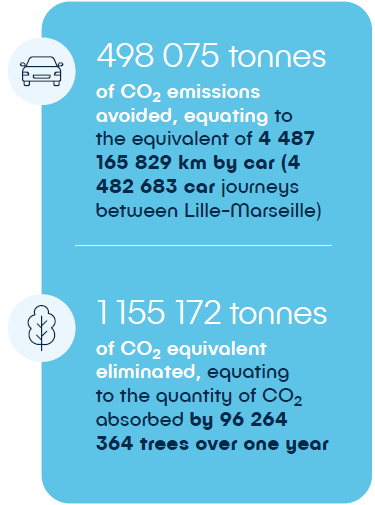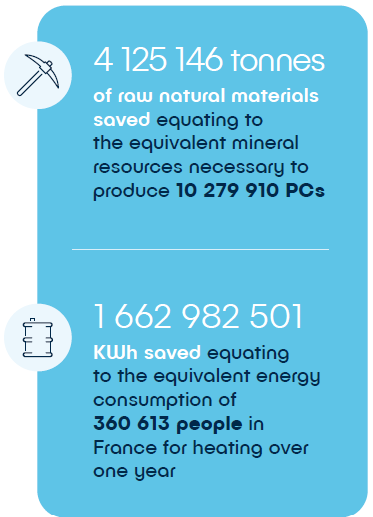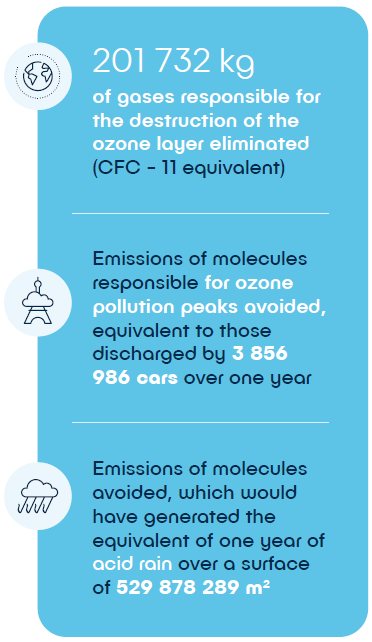In 2023, the collection, depollution and recycling of household WEEE and lamps made it possible to combat:
Climate change

- 498,075 tonnes of CO2 emissions avoided, equivalent to 4,487,165,829 km by car (4,482,683 car journeys between Lille and Marseille)
- 1,155,172 tonnes of CO2 equivalent eliminated, equivalent to the amount of CO2 absorbed by 96,264,364 trees in one year
The depletion of natural resources

- 4,125,146 tonnes of raw materials saved, equivalent to the mineral resources needed to produce 10,279,910 computers
- 1,662,982,501 kWh saved, equivalent to the energy consumption of 360,613 French people in order to heat their homes for one year
Other forms of pollution

- 201,732 kg of ozone-depleting gas eliminated (CFC-11 equivalent)
- Emissions of gas molecules responsible for peak ozone pollution levels avoided, equivalent to the volume emitted by 3,856,986 cars in one year
- Gas molecule emissions avoided, potentially generating a year’s worth of acid rain over a surface area of 529,878,289 m²
Our challenges to optimise the positive impact of our business:
- Reduce the environmental impact of the various stages in the recycling chain, for example by preserving the integrity of equipment (refrigerators, hot water tanks) containing refrigerant and insulating gases with high calorific values, during collection and processing
- Optimise the environmental benefits by regenerating more recycled materials of increasingly high quality. For instance, we are developing new technologies to extract strategic materials from printed circuit boards.
- Watch this video in French to find out how we can improve our environmental performance!